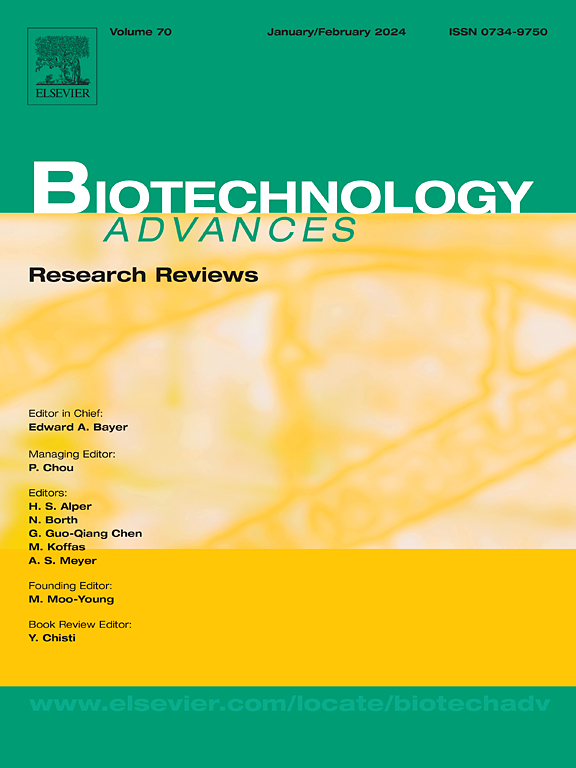Harnessing biological nitrogen fixation: Multi-scale engineering for self-sustaining agroecosystems
IF 12.5
1区 工程技术
Q1 BIOTECHNOLOGY & APPLIED MICROBIOLOGY
引用次数: 0
Abstract
Certain prokaryotic microorganisms possess the extraordinary ability to convert atmospheric nitrogen gas into ammonia in a process known as biological nitrogen fixation. Harnessing this process as a substitute for chemical nitrogen fertilizers offers substantial benefits for agricultural productivity. Improving the efficiency of nitrogen fixation and enabling crops to fix nitrogen biologically are crucial research goals. This review explores molecular mechanisms governing nitrogenase activity, engineering strategies for enhancing nitrogen fixation efficiency in non-diazotrophic hosts, and evaluates synthetic biology approaches for establishing robust nitrogen-fixing systems. We emphasize the integration of multi-scale engineering – from nitrogen fixation circuit design in microbial chassis to rhizosphere microbiome reprogramming to engineered nitrogen-fixing crops and field applications at the ecosystem level – as critical pathways toward creating self-sustaining agroecosystems. We conclude by discussing key challenges and identifying research priorities to expand the practical applications of biological nitrogen fixation. This review provides a framework for developing multi-layered bioengineering solutions that enhance crop productivity while reducing ecological impacts, ultimately advancing the realization of self-regulating agricultural ecosystems.
利用生物固氮:自我维持农业生态系统的多尺度工程
某些原核微生物具有将大气中的氮气转化为氨的非凡能力,这一过程被称为生物固氮。利用这一过程作为化学氮肥的替代品为农业生产力提供了巨大的好处。提高固氮效率和使作物能够生物固氮是重要的研究目标。本文综述了控制氮酶活性的分子机制,提高非重氮营养寄主固氮效率的工程策略,并评估了建立稳健固氮系统的合成生物学方法。我们强调多尺度工程的整合——从微生物底盘的固氮电路设计到根际微生物组重编程,再到工程固氮作物和生态系统层面的田间应用——是创造自我维持的农业生态系统的关键途径。最后,我们讨论了扩大生物固氮实际应用的关键挑战和确定的研究重点。本综述为开发多层生物工程解决方案提供了一个框架,这些解决方案可以在提高作物生产力的同时减少生态影响,最终促进农业生态系统自我调节的实现。
本文章由计算机程序翻译,如有差异,请以英文原文为准。
求助全文
约1分钟内获得全文
求助全文
来源期刊

Biotechnology advances
工程技术-生物工程与应用微生物
CiteScore
25.50
自引率
2.50%
发文量
167
审稿时长
37 days
期刊介绍:
Biotechnology Advances is a comprehensive review journal that covers all aspects of the multidisciplinary field of biotechnology. The journal focuses on biotechnology principles and their applications in various industries, agriculture, medicine, environmental concerns, and regulatory issues. It publishes authoritative articles that highlight current developments and future trends in the field of biotechnology. The journal invites submissions of manuscripts that are relevant and appropriate. It targets a wide audience, including scientists, engineers, students, instructors, researchers, practitioners, managers, governments, and other stakeholders in the field. Additionally, special issues are published based on selected presentations from recent relevant conferences in collaboration with the organizations hosting those conferences.
 求助内容:
求助内容: 应助结果提醒方式:
应助结果提醒方式:


